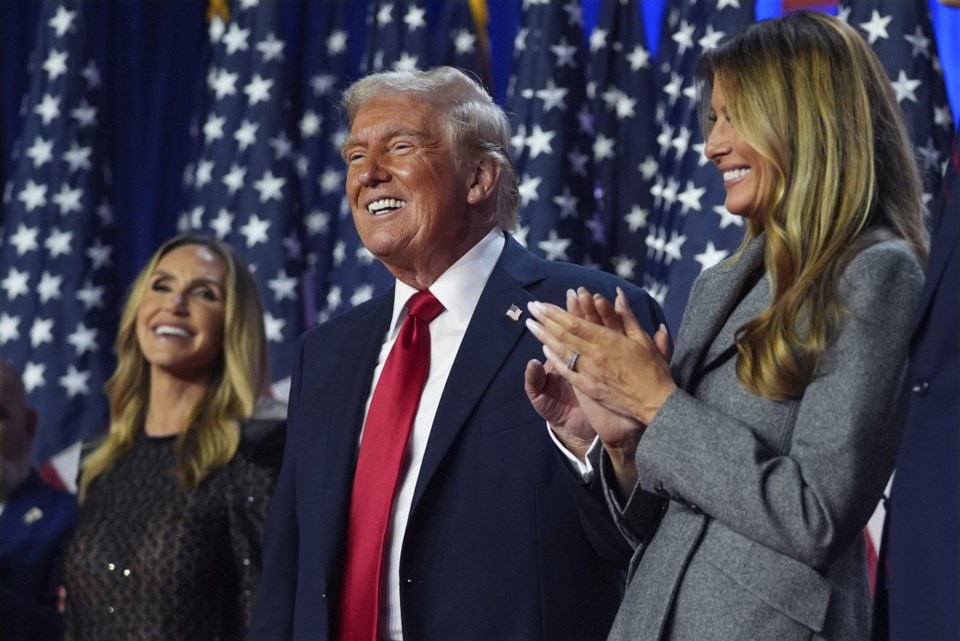TORONTO — Ontario is set to go on a "charm offensive" in the United States in the coming weeks now that Donald Trump has won the presidential election.
Premier Doug Ford and Economic Development Minister Vic Fedeli said government representatives will head down south to protect jobs and promote trade.
"I call it a charm offensive to remind them that we need each other for both economies to grow," Fedeli said Wednesday.
Trump has vowed to renegotiate the Canada-United States-Mexico Agreement, which Ford said will be crucial to the province's fortunes.
"We're going to work with president-elect Trump as we did at the beginning of the administration and we just want to work and have a fair trade deal," Ford said.
Fedeli is set to go to Washington, D.C., in December and again in January, followed by a tour of three states.
He said Ontario is the top trading partner to 17 states and second to 11 other states.
"And we have something that they'll always want, and that's our critical minerals and our energy," he said.
Trump has also criticized electric vehicles and has mused about ripping up government subsidies, including the Inflation Reduction Act that President Joe Biden put in place in 2021.
Those deals helped lure automakers to build EV-related plants in the U.S. while Canada was forced to match those production tax credits in deals with Stellantis and Volkswagen, both of which are building EV battery plants in the province.
Ford said he's not worried about it.
"I believe that's going to be the way of the future: EV vehicles," he said.
"We have a tremendous amount of investments involved in the sector, but we have the critical minerals that the U.S. needs."
Ontario and the federal government have bet big in recent years on the electric vehicle market. Ford envisions an end-to-end manufacturing chain that sees critical minerals mined up north, then processed and brought south to be used to make EV batteries.
Ford said he spoke with Deputy Prime Minister Chrystia Freeland Tuesday night about protecting Ontario and Canadian jobs.
"We're united with the federal government and we're going to be united with all the premiers," he said.
Ford dealt with the Trump administration for a few years after his Progressive Conservatives won the 2018 Ontario election. He said he visited Trump's former trade guru, Robert Lighthizer, who was contemplating tariffs on Canadian goods. Ford said he told him not to do it.
But Trump and Lighthizer didn't listen and put tariffs on Canadian steel and aluminum.
"I went back and said (to Freeland): tariff everything," Ford said.
Canada responded with tariffs on a laundry list of goods, which eventually forced Trump to back down on the steel and aluminum tariffs.
"This is about a Can-Am approach, a Canada-America approach, making sure that we're doing the best thing to protect Canadian and Ontario jobs and American jobs," Ford said. "We're the closest allies in the world."
This report by The Canadian Press was first published Nov. 6, 2024.
Liam Casey, The Canadian Press



